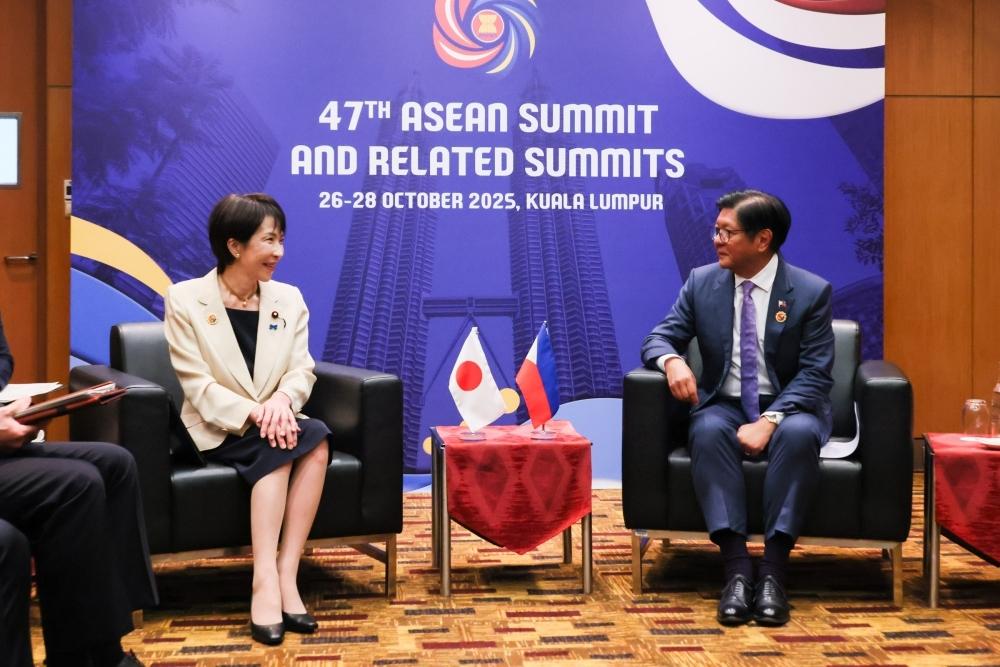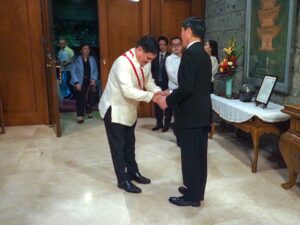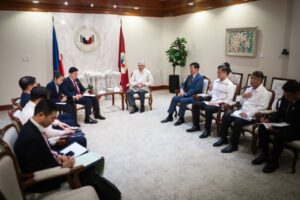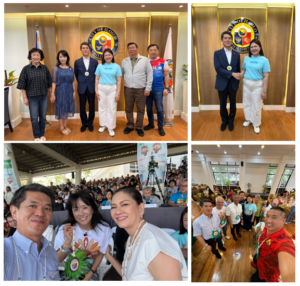
(photo credit: Japan Cabinet Public Affairs Office)
On the sidelines of the 47th Association of Southeast Asian Nations (ASEAN) Summit, Prime Minister Takaichi Sanae and President Ferdinand Marcos Jr. held a meeting yesterday in Kuala Lumpur, Malaysia, to strengthen the bilateral relations between Japan and the Philippines.
While newly appointed Prime Minister Takaichi stressed the importance of the strategic partnership toward realizing a free and open Indo-Pacific, President Marcos noted a stronger bilateral cooperation is but appropriate for the 70th anniversary next year of the normalization of diplomatic relations between the two countries.
Both leaders agreed on working to deepen the foundation for security cooperation that contributes to the peace and stability of the Philippines and the region. In particular, they welcomed the entry into force of the JP-PH Reciprocal Access Agreement (RAA) whose inaugural application was the five-day “Doshin Bayanihan 5-25” joint exercise. During which, Japan Self-Defense Forces (JSDF) utilized its C-130H transport aircraft participating in the joint exercise to assist in delivering relief goods to affected communities in the northern part of Cebu Island following the earthquake.
They also cited reaching an agreement in principle on the Acquisition and Cross-Servicing Agreement (ACSA), a new defense pact that will allow their armed forces to exchange supplies and services; and the progress of cooperation through Japan’s Official Security Assistance (OSA) for the Philippines.
On the economic sector, Prime Minister Takaichi conveyed Japan’s desire to leverage its strengths to promote the resilience of the Philippine economy and infrastructure. She also underscored Japan’s intention to contribute to the Philippines’ food security through the provision of equipment for post-harvest rice processing.
Furthermore, Prime Minister Takaichi cited the signed memorandum of cooperation (MOC) on energy transition at the recent Asia Zero Emission Community (AZEC) Ministerial Meeting. She conveyed Japan’s intention to advance civil nuclear partnership and to cooperate toward the success of AZEC next year.
Both leaders committed to continue close coordination in addressing various international challenges, including the situation in the South China Sea, responses to North Korea encompassing nuclear and missile issues and the abduction issue, the situations in Myanmar, and the situations in the Cambodia-Thailand border areas.


